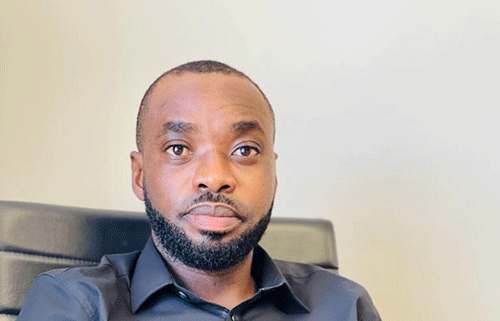With the conclusion of the Swapo Party electoral college, or “Swapo Pot”, the nation saw an unparalleled youth surge in the political sphere.
Many young candidates, including Fenny Tutjavi (22), a youth activist for millennials, Emma Theofelus (28) the minister of information and communication technology (ICT), and Dino Ballotti, the head of business and public sector at First National Bank, emerged victorious in the 2024 Swapo electoral college.
Traditional party politics needed to shift in light of the rise of young candidates and the positive response from voters.
Additionally, those who participated in the Swapo Party electoral college supported the youthful faces with a clear enthusiasm for what they had to give. Young leaders now carry a great deal of public support and expectations. They must demonstrate their abilities with original concepts and vision if they hope to keep this respect and trust. Other new young leaders may also lose faith because of the ineptitude of the outgoing young leaders. It is crucial to provide these leaders with the information, tools and inspiration they need to bring about the changes they desire.
Although the new generation of young people entering Parliament is undoubtedly knowledgeable and passionate about change, do they also possess the maturity to make sound decisions? Do leaders who are younger by nature become better and more effective leaders than those who are older? If not, shouldn’t the emphasis be on developing them into better leaders through mentorship and training? It has long been acknowledged that young people will be tomorrow’s leaders.
However, this is no longer the case. To alter this narrative and take control of their destiny, young leaders are currently leading the way. But in Namibia, up-and-coming intellectuals never have mentors or support from their forbearers.
In the past, Namibian youth have played a significant role in and taken the initiative in significant political shifts, like the 1959 Old Location revolt.
They have traditionally been seen as important transformation agents. But, neither inside political parties nor outside of them do young people receive encouragement or support when it comes to providing them with meaningful space.
For example, a youthful political figurehead will not be permitted to run for the party presidency. It hits back to the lack of trust that exists across generations within political parties.
The nation’s political unpredictability and economic unrest, which have led to joblessness, forced labour migration, corruption and other issues, have primarily impacted young people. Because of this, most of today’s young leaders have developed this agenda for changing directions.
Young people can navigate the nation’s development in a new light since they have a solid knowledge of cutting-edge inventions and technology. Let’s imagine that given the correct guidance, they can come up with fresh, creative answers to the issues the nation faces.
Instead of coming from outside organisations, mentoring should originate from within political parties to establish a culture where more seasoned leaders train the less- seasoned ones. It might also result in a seamless transfer of power from elder to younger generations, which presents some difficulties in Namibia.
Professionals and experts should mentor young people entering politics and holding positions so they can implement relevant and sustainable policies. Establishing a mentorship culture is crucial for fostering intergenerational learning among political leaders about critical and strategic issues. Lastly, it is critical to present the idea of a dignified retirement to political parties.
*Joseph Nanewo Abed holds a specialised Master of Laws (Moscow University, Russian), and a Bachelor’s Degree in Criminal Justice (Hon)- Policing (NUST), PGDipPP (University of Pretoria). He is currently pursuing a Master of International Relations, Diplomacy and Management (IUM) as well as a Master of Public Administration majoring in National Development (Peking University).


